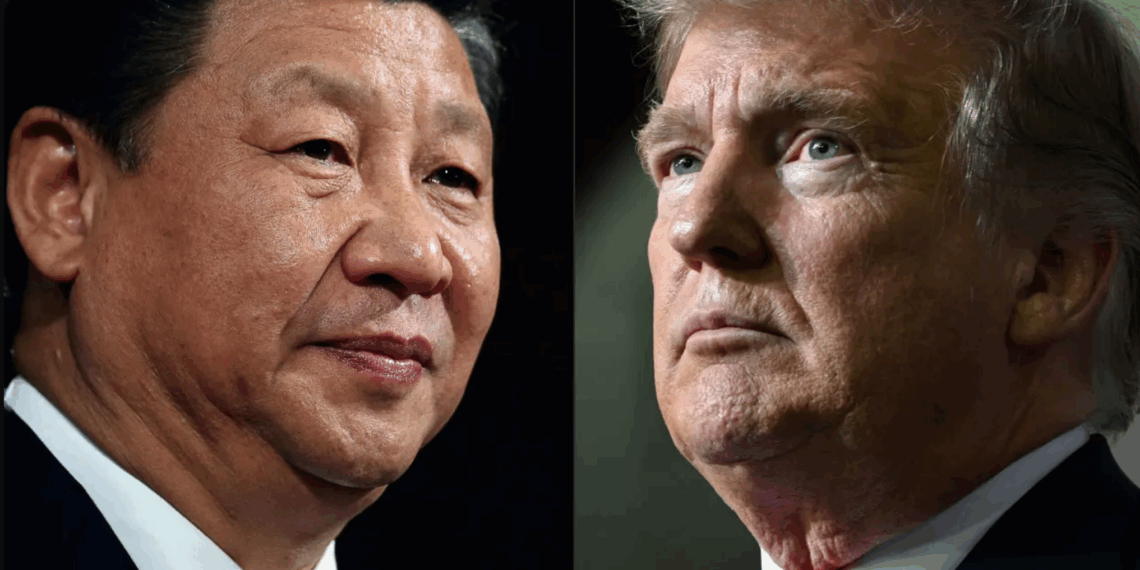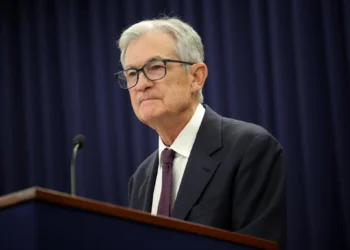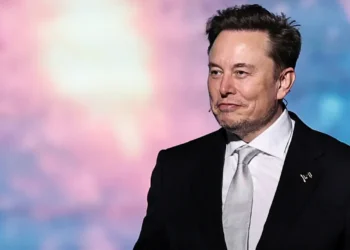BEIJING / WASHINGTON (Realist English). The Chinese government has sharply criticized the United States for what it calls “discriminatory restrictions” in the semiconductor sector, escalating a renewed U.S.–China trade conflict just days after President Donald Trump accused Beijing of violating a preliminary trade deal.
“China has repeatedly raised concerns with the U.S. regarding its abuse of export control measures in the semiconductor sector and other related practices,” Liu Pengyu, spokesperson for the Chinese embassy in Washington, told NBC News.
The diplomatic clash comes amid heightened geopolitical and technological rivalry, particularly in the race to dominate artificial intelligence infrastructure. At the center of the dispute is Washington’s expanding effort to block Chinese access to cutting-edge chip technology — a campaign dating back to Trump’s first term and now intensifying under his renewed administration.
Trade freeze and public rebukes
Trump, in a social media post early Friday, accused China of failing to honor the terms of a 90-day tariff suspension agreement, reached after economic talks in Geneva on May 12. “The Chinese are slow-rolling compliance,” said U.S. Trade Representative Jamieson Greer in a separate CNBC interview.
China responded by demanding that the U.S. “correct its erroneous actions” and stop “discriminatory restrictions against China,” referencing a broader consensus allegedly reached in Geneva. However, Beijing did not clarify which U.S. measures it considers violations of that deal.
Chip war escalates
At the core of the dispute are toughened U.S. export controls that bar American companies from supplying key technologies to Chinese firms. This includes bans on AI chips developed by Nvidia, Huawei, and software from Synopsys and Cadence Design Systems, all of whom reportedly received new directives from the U.S. Commerce Department this month.
Earlier this year, Nvidia was told it could no longer export its H20 AI chip to China — a model specifically designed to comply with 2022 regulations. The company now expects to lose $8 billion in quarterly sales, with $4.5 billion in unsellable inventory stuck in limbo.
“The U.S. has based its policy on the assumption that China cannot make AI chips,” Nvidia CEO Jensen Huang told investors. “That assumption was always questionable — and now it’s clearly wrong.”
The restrictions, part of what Washington frames as a national security strategy, began in 2019 when Trump barred Huawei from accessing American tech, effectively pushing the firm out of the smartphone market. That early wave of controls paved the way for a broader tech decoupling effort, which President Joe Biden later expanded.
The Trump administration recently rolled back the controversial “AI diffusion rule”, a Biden-era framework that would have imposed export caps on nearly all countries. A new, simplified regulation is reportedly in the works.
Industry backlash and global realignment
Critics of U.S. policy — including Nvidia and trade analysts — warn that the sanctions risk accelerating China’s domestic chip industry rather than hindering it. Nvidia, in particular, has argued that rather than preserving U.S. technological leadership, the rules are isolating American companies from a growing global market.
Meanwhile, Chinese officials argue that U.S. restrictions are not only economically disruptive, but violate the spirit of free trade and weaponize supply chains to assert global dominance.


















